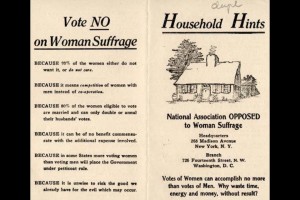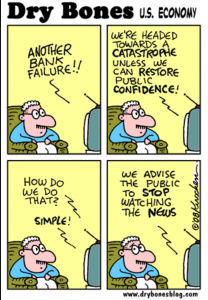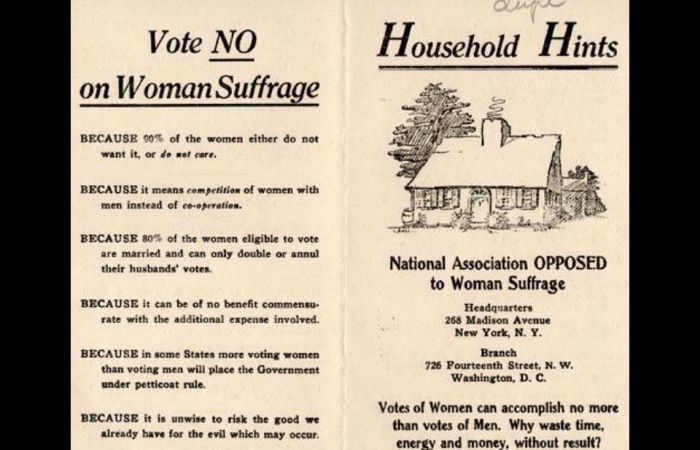Narratives that alter beliefs and change norms or guiding principles may indeed have real and lasting effects.
In the 2017 American Economic Association Presidential Address, delivered at the annual meeting in Chicago, Nobel Laureate Robert Shiller discussed the idea of narrative economics. ProMarket covered his talk in the article “Role of Narratives in Economics.” Some readers of the article wondered whether narratives—although found everywhere in the realms of culture, politics, religion, and economics—could really cause fundamental changes in society. Could they merely be expressions of underlying social conditions?
Narratives that alter beliefs and change norms or guiding principles may indeed have real and lasting effects. For example:
- Identity: Narratives about gender identity can have a real impact on opportunities enjoyed by women, as economists George Akerlof and Rachel Kranton (2000) have argued in their framework of identity economics. When a society expects women to adhere to certain cultural stereotypes (Figure 1), it penalizes women who break those norms. This makes it difficult for women to pursue opportunities generally thought to be reserved for men. So, they attempt to conform to the stereotypes they are expected to follow.

- Confidence and Trust: Markets can be shaped by feelings of “confidence,” as Shiller and Akerlof discuss in their 2009 book Animal Spirits. Confidence in an economy is a complex emotion. Confidence depends on the beliefs people have regarding the beliefs of others about the economy. If confidence gets shaken, due to a shock or a rumor, it may trigger bank runs and recessions (Figure 2). Even in everyday investment decisions, when confidence in stock markets is low or people trust each other less, economists Luigi Guiso, Paola Sapienza, and Luigi Zingales (2004, 2008) have found that there tends to be lower financial activity.

- Ideas: Economic historians Deirdre McCloskey and Joel Mokyr have highlighted the importance of ideas in shaping history. McCloskey has emphasized the importance of Bourgeois Values in her trilogy of books (2006, 2010, 2016), which valued profit and innovation and made European economies more enterprising. Joel Mokyr, in his 2016 book Culture of Growth, talks of cultural entrepreneurs like Martin Luther, Francis Bacon, Isaac Newton, Adam Smith, and Karl Marx, whose contributions had a disruptive impact on the market of ideas and cultural evolution of early modern Europe. One of the prominent “viral” and consequential ideas in the post-Gutenberg era was The Ninety-five Theses (Figure 3) by Martin Luther (1517), which triggered the Protestant Reformation.

Amid the endless types of possible narratives, the narratives that promote mistrust and justify dishonesty can be consequential and persistent (Edward Banfield, 1954, Putnam, 1994). If people believe others are dishonest, they rationalize that it is good for them to be opportunistic too, for themselves, their families, and their friends (the narrative is called amoral familism). Being honest and trusting to relatively unfamiliar acquaintances can be costly for individual members in such a society, as they get easily cheated. Cultural entrepreneurs who try to promote cosmopolitan (or bourgeois) norms of honesty and openness will struggle in an amoral familist society, unless they have a charisma and rhetorical force that promotes mass adoption of cosmopolitan norms.
The Islamic prophet Muhammad emerged as one such figure in 7th century Arabia, which was tribally divided, conflict ridden, and in need of inter-tribal trade. Muhammad
promoted a cosmopolitan narrative of Ummah (pan-Islamic community) (Montgomery, 1961) and redistributive norms of zakat and waqf (Machalopoulos, Naghavi and Prarolo, 2015). This belief in Ummah made trade easier, as people were motivated to discard their amoral familist codes of tribal loyalty and adopted more pan-Islamic moral codes.
Amoral familism in the United States may look a lot like the the “post-truth” world of “alternative” facts with a dramatic erosion in public trust. Shiller in his address discussed the “post-trust” world. He wrote:
“Disturbingly, the Oxford Dictionary in 2016 gave “post-truth” as “international word of the year.” Are narratives becoming increasingly based on false ideas? This possibility is something we ought to try to understand better. Among normal people, narratives are often somewhat dishonest and manipulative. In a competitive market where competitors manipulate customers and profit margins have been competed away to normal levels, no one company can choose not to engage in similar manipulations. If they tried, they might be forced into bankruptcy. A phishing equilibrium with a certain equilibrium acceptable level of dishonesty in narrative is established (Akerlof and Shiller, 2015).”






